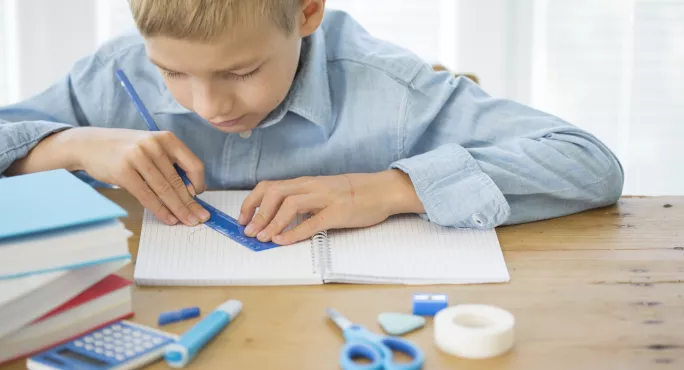What did you learn about today? It’s a question asked by parents and carers in car parks and kitchens up and down the country on a daily basis.
“Henry VIII had six wives.” “The square root of 169 is 13.” “Mr Appleby wears a wig.” “Err… I dunno...” and so on.
But after a severely disrupted 12 months, schools will be hoping for much fuller answers from their diagnostic assessments of what students have learned.
Through a combination of low-stakes litmus tests and some informed assumptions, teachers will be trying to work out how much knowledge has been absorbed - and retained - during lockdown. But is this the right approach?
One study is trialing something quite different.
Find out more on the learning survey
Measuring learning, not just knowledge
Trusts for Impact is a group of academy chains representing more than 50,000 students.
They were approached by the researchers Stephen Cox and Anne-Marie Duguid from Osiris Education, along with Professor John Hattie, to take part in an experiment that focuses assessment on “capacity to learn’”, rather than measuring what has already been learned.
“We know from research that a learning focus offers higher impact and better foundations for a lifetime of learning,” Cox explains.
“Knowledge and external examinations are easier to measure, but this creates a backwash effect - perverse incentives, competition, stress - and encourages teaching to the test. The question of school improvement then narrows to how to improve test scores.”
A changed focus
So how do you do things differently? In the study, schools are invited to participate in the “world’s largest student survey about learning”.
It comprises of 36 questions and instead of scoring a student’s knowledge, it asks them to rate their own expectations for learning and how they embrace challenges, welcome support and learn from mistakes.
“This is trying to get a major focus on the learning strategies, the social and emotional parts of learning, and creating reports back to school,” explains Hattie.
This data produced is then anonymised, preventing unhelpful comparisons between schools.
“Schools can see how well they’re going relative to larger national sets of schools, but without naming them - this is not about comparing schools for competing reasons,” Hattie explains.
The assessment question
Cox and Hattie believe the approach could have a big impact on outcomes in schools.
“A learning focus broadens outcomes by including learner agency and learner voice, and their expectations and strategies, such as knowing what to do when they don’t know,” Cox says.
“The role of assessment can then broaden to be about developing assessment capability in learners themselves, rather than just to serve desired external outcomes, so learners start to know whether they are on the right tracks and hitting quality markers independent of the teachers.
“It will [also] allow schools to look at outcomes for learners through a broader lens, bringing attention to proven strategies around learning that show greater potential.”
The survey has been honed by Cox and Hattie, with the help of a number of UK academy trusts, and will officially launch at the World Education Summit later this month.
“We’ve trialled it extensively in a number of places and it’s worked very well,” says Hattie. “But most importantly, what’s worked well is the interpretations. We find that schools actually do something as a consequence of doing these assessments; they actually change what they do in their schools.”
Stephen Cox, Anne-Marie Dugoid and John Hattie launched their global learning survey at this year’s World Education Summit (22-25 March). Tes is the official media partner for the event. Find out more about the learning survey.






